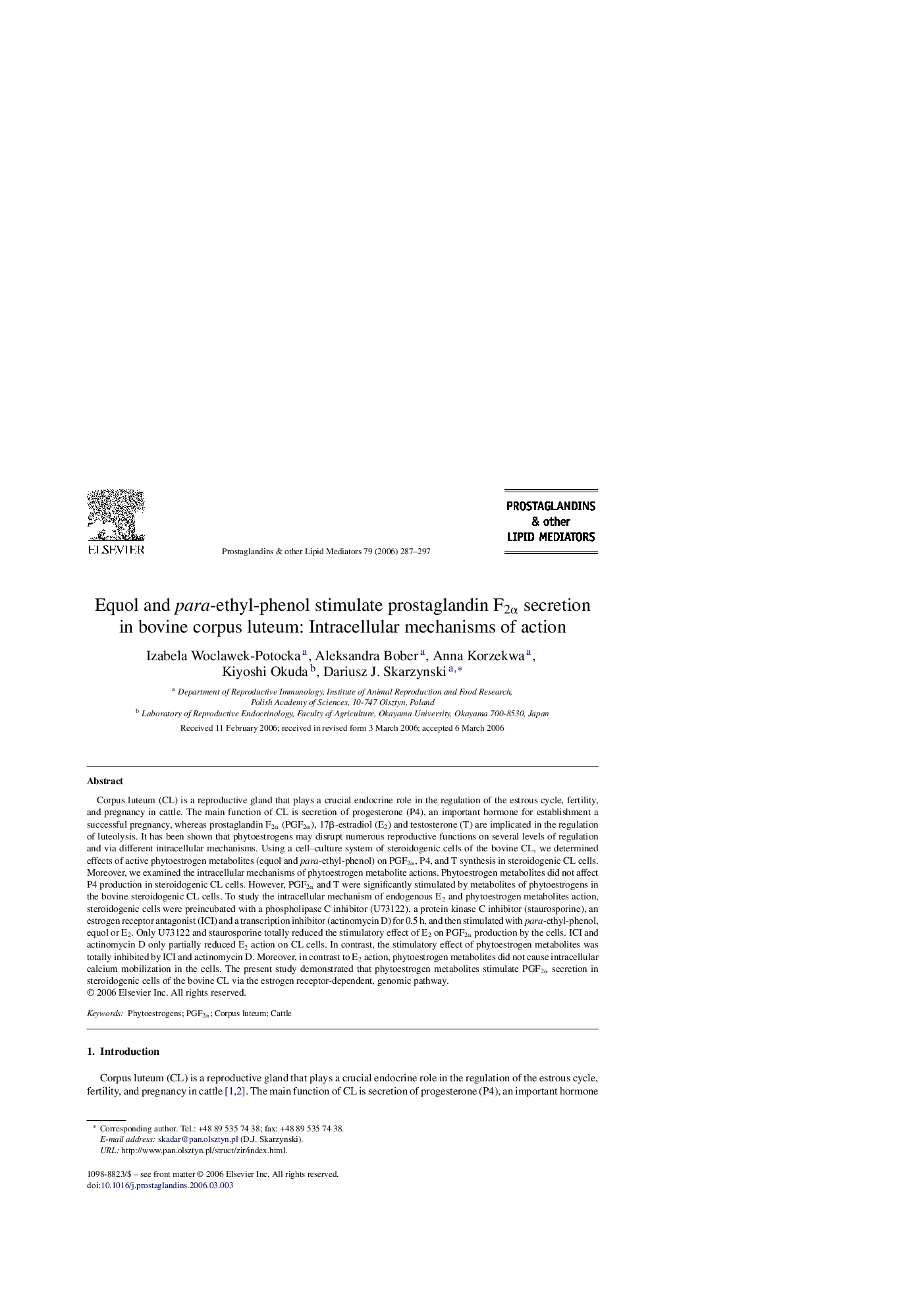| Article ID | Journal | Published Year | Pages | File Type |
|---|---|---|---|---|
| 2020140 | Prostaglandins & Other Lipid Mediators | 2006 | 11 Pages |
Corpus luteum (CL) is a reproductive gland that plays a crucial endocrine role in the regulation of the estrous cycle, fertility, and pregnancy in cattle. The main function of CL is secretion of progesterone (P4), an important hormone for establishment a successful pregnancy, whereas prostaglandin F2α (PGF2α), 17β-estradiol (E2) and testosterone (T) are implicated in the regulation of luteolysis. It has been shown that phytoestrogens may disrupt numerous reproductive functions on several levels of regulation and via different intracellular mechanisms. Using a cell–culture system of steroidogenic cells of the bovine CL, we determined effects of active phytoestrogen metabolites (equol and para-ethyl-phenol) on PGF2α, P4, and T synthesis in steroidogenic CL cells. Moreover, we examined the intracellular mechanisms of phytoestrogen metabolite actions. Phytoestrogen metabolites did not affect P4 production in steroidogenic CL cells. However, PGF2α and T were significantly stimulated by metabolites of phytoestrogens in the bovine steroidogenic CL cells. To study the intracellular mechanism of endogenous E2 and phytoestrogen metabolites action, steroidogenic cells were preincubated with a phospholipase C inhibitor (U73122), a protein kinase C inhibitor (staurosporine), an estrogen receptor antagonist (ICI) and a transcription inhibitor (actinomycin D) for 0.5 h, and then stimulated with para-ethyl-phenol, equol or E2. Only U73122 and staurosporine totally reduced the stimulatory effect of E2 on PGF2α production by the cells. ICI and actinomycin D only partially reduced E2 action on CL cells. In contrast, the stimulatory effect of phytoestrogen metabolites was totally inhibited by ICI and actinomycin D. Moreover, in contrast to E2 action, phytoestrogen metabolites did not cause intracellular calcium mobilization in the cells. The present study demonstrated that phytoestrogen metabolites stimulate PGF2α secretion in steroidogenic cells of the bovine CL via the estrogen receptor-dependent, genomic pathway.
